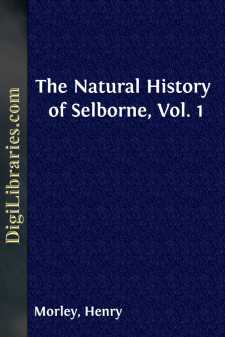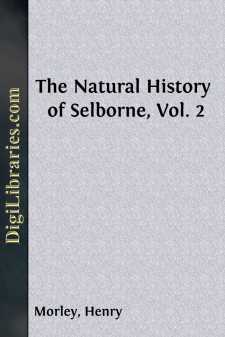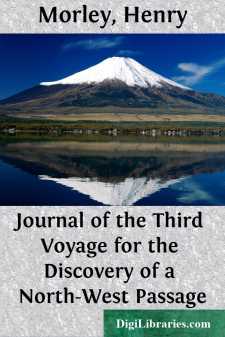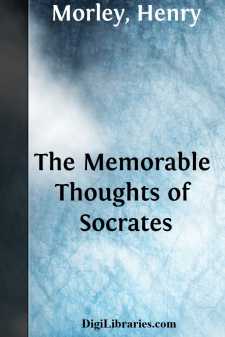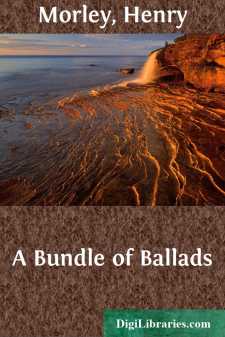Categories
- Antiques & Collectibles 13
- Architecture 36
- Art 48
- Bibles 22
- Biography & Autobiography 813
- Body, Mind & Spirit 142
- Business & Economics 28
- Children's Books 15
- Children's Fiction 12
- Computers 4
- Cooking 94
- Crafts & Hobbies 4
- Drama 346
- Education 46
- Family & Relationships 57
- Fiction 11828
- Games 19
- Gardening 17
- Health & Fitness 34
- History 1377
- House & Home 1
- Humor 147
- Juvenile Fiction 1873
- Juvenile Nonfiction 202
- Language Arts & Disciplines 88
- Law 16
- Literary Collections 686
- Literary Criticism 179
- Mathematics 13
- Medical 41
- Music 40
- Nature 179
- Non-Classifiable 1768
- Performing Arts 7
- Periodicals 1453
- Philosophy 64
- Photography 2
- Poetry 896
- Political Science 203
- Psychology 42
- Reference 154
- Religion 513
- Science 126
- Self-Help 84
- Social Science 81
- Sports & Recreation 34
- Study Aids 3
- Technology & Engineering 59
- Transportation 23
- Travel 463
- True Crime 29
Sort by:
by:
Henry Morley
INTRODUCTION. Gilbert White was born in the village of Selborne on the 18th of July, in the year 1720. His father was a gentleman of good means, with a house at Selborne and some acres of land. Gilbert had his school training at Basingstoke, from Thomas Warton, the father of the poet of that name, who was born at Basingstoke in 1728, six years younger than his brother Joseph, who had been born at...
more...
by:
Henry Morley
INTRODUCTION. Gilbert White’s home in the quiet Hampshire village of Selborne is an old family house that has grown by additions, and has roofs of nature’s colouring, and creeping plants on walls that have not been driven by scarcity of ground to mount into the air. The house is larger, by a wing, now than when White lived in it. A little wooded park, that belongs to it, extends to a steep...
more...
by:
Henry Morley
INTRODUCTION. William Edward Parry, the son of a physician, was born at Bath in December, 1790. At the age of thirteen he was entered as a first-class volunteer on board the flag-ship of the Channel fleet, and after seven years’ service and careful study of his profession he obtained a commission in 1810 as lieutenant in the navy. He was then at once, aged twenty, sent to the Arctic seas, where...
more...
by:
Henry Morley
INTRODUCTION. This translation of Xenophon’s “Memorabilia of Socrates” was first published in 1712, and is here printed from the revised edition of 1722. Its author was Edward Bysshe, who had produced in 1702 “The Art of English Poetry,” a well-known work that was near its fifth edition when its author published his translation of the “Memorabilia.” This was a translation that...
more...
by:
Henry Morley
INTRODUCTION BY THE EDITOR. Recitation with dramatic energy by men whose business it was to travel from one great house to another and delight the people by the way, was usual among us from the first. The scop invented and the glee-man recited heroic legends and other tales to our Anglo-Saxon forefathers. These were followed by the minstrels and other tellers of tales written for the people. They...
more...


